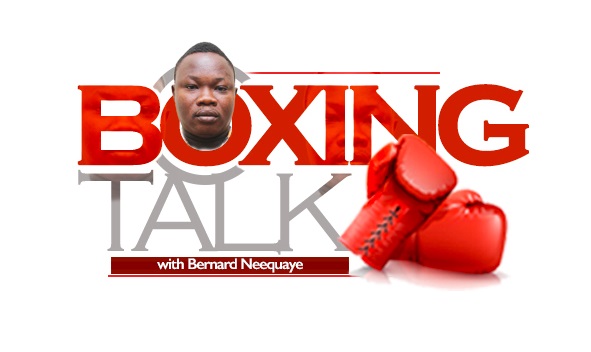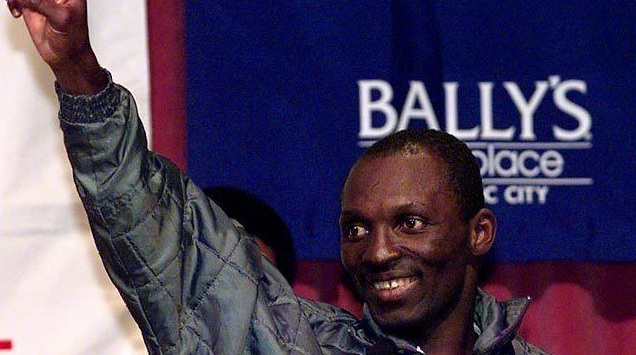Major and Latest Boxing news in Ghana

FEATURE: Forget him not, Nana Yaw Konadu
Drive, dedication and passion, they say, make one successful in life. These were Nana Yaw Konadu’s three traits when he found solace in boxing as a means of making it from the streets of Sunyani.
It was not an easy journey but, at least, his struggles as a poor 14-year-old boy on the streets of Sunyani paid off when he became a two-time world champion.
Advertisement
The long -awaited world title was snatched at last on November 7,1989 when he cruised to a unanimous decision victory over Gilberto Roman in Mexico City. Konadu won the World Boxing Council’s (WBC) super flyweight crown at stake.
It was not an easy fight for him but at least the ultimate had been attained.
“I remember I got to Mexico City two weeks to the fight because I needed to acclimatise because of its high altitude, which I did by the time the bout took place,” Konadu told the Graphic Sports.
“It was the best feeling of my life looking from where I had come from but I knew my success was by dedication, which is very key in everything you do,” he added.
A month after his big win, Konadu travelled to South Korea to face Sung Kil Moon in his first title defence which he lost on January 20, 1990. He was subsequently defeated in a rematch a year later and that was the end of his dominance at super flyweight.
Konadu managed to win 15 times after his second loss to Moon, which landed him a shot at the World Boxing Association (WBA) bantamweight title against Veeraphol Sahaprom in Thailand and won by a knockout.
The win did not only make him a two-division world champion but cemented his legacy as the only Ghanaian fighter after legendary Azumah Nelson to achieve that.
His achievements in the ring made him a popular figure in Ghana. However, the question remains how he got attracted to the fistic sport.

Konadu’s background
Born on February 15, 1964 in Sunyani in the Bono Region, Konadu was part of 11 children who had to go through bad upbringing after losing their father at a very tender age. Konadu said he resorted to streetism at age 14 just to help fend for the family.
It was through this usual street life that he once visited the Coronation Park in Sunyani where his elder brother was training as a boxer.
“I remember the coach used to sack me for being a small boy who wanted to train as a boxer. I never gave up because I became interested in the sport,” he narrated.
Konadu got his chance to finally commence training in 1975 when one coach Salami, a boxing trainer, was transferred from the Northern Region to the Bono Region by the National Sports Authority (NSA).
Coach Salami started gathering the youth to train them and that was what got him into the sport. The relationship with his coach became very close but ended in four years.
In 1979, the renowned Floyd Robertson was moved to Sunyani as the regional coach and that Konadu described as the best moment of his career. To him, it was what kickstarted his entire career.
“When Coach Salami was leaving, he recommended me to Floyd Robertson and he started polishing me when he arrived. He was a blessing to my career,” he said.
Konadu’s partnership with his new trainer paid off as he won gold at the National Sports Festival in Accra. He later joined the national amateur team, Black Bombers, where he featured in various international competitions.
“My amateur career was a successful one. I ended with a 63-15 record and competed at the West African Games, African Games and other international competitions,” he added.

Professional career
In 1984, Konadu decided to turn professional at age 20. His debut was against the dangerous Michael Ebo Danquah at the Accra Sports Stadium. It was a keenly-contested bout which ended in a draw.
After two years as a professional without any blemish in after seven bouts, a renowned boxing syndicate in Ghana, Ringcraft Promotions, decided to add Konadu to its stables after making Azumah Nelson a world champion.
At this point, they were the biggest and best boxing syndicate from Ghana and Konadu was interested in the adventure.
“They took me to the US for a training tour before I fought for the Commonwealth title against Zambia’s Albert Musankabala in Accra,” he recalled.
After the Commonwealth crown, Ringcraft led him to win the WBC International title in 1989 against Cesar Polanco which he successfully defended against Dae Yong Park that same year.
Soon the world title availed itself in 1989 against Gilberto Roman on his 19th professional fight. It was in Mexico against a more experienced Roman and the WBC super flyweight title was at stake.
“I was well-conditioned for the fight. I left for Mexico City two weeks to the fight and that helped me a lot. I came through as the winner and it was a great feeling,” he revealed.
Konadu’s fame didn’t last as he lost the title in his first defence in 1990 to Sung Kil Moon. In October and December that same year, he defeated Diego Duran and Kevin Nwundidwe in contests before activating a rematch clause with Moon.
The rematch took place in Zaragoza, Spain, but an injury to his right hand ended the night abruptly for him in the fourth round. Konadu moved up in weight after failing to reclaim his title.
In 1992, Konadu signed under the famous Don King Promotions and relocated to the US. After several fights under his new promoters, he landed a shot at the WBA bantamweight crown against Veeraphol Sahaprom in Thailand in 1996.
“It was a memorable night for me. I became a two-division world champion by beating him in his homeland with a knockout,” he said.
Konadu lost the title to Daorung Chuwatana in October 1996 and reclaimed it in 1997 in a rematch. However, the Ghanaian failed to hold onto his belt for long as Johnny Tapia dethroned him in 1998.
“I will describe my career as a success because I achieved so much than I ever anticipated. I was able to invest in so many things,”he stated.

Post-boxing life
Konadu likes to live an isolated lifestyle and has moved to his native Sunyani base. Here, he is looking forward to helping the next generation of fighters in the Bono Region.
“I always love to be in Sunyani and that is why I relocated back home. I am pushing to help upcoming boxers in the region by imparting the knowledge I have gained from years as a professional fighter,” he said.
He is hopeful he could help produce another world champion from the Bono Region, having been the only boxer from the area to have risen to greater heights.




